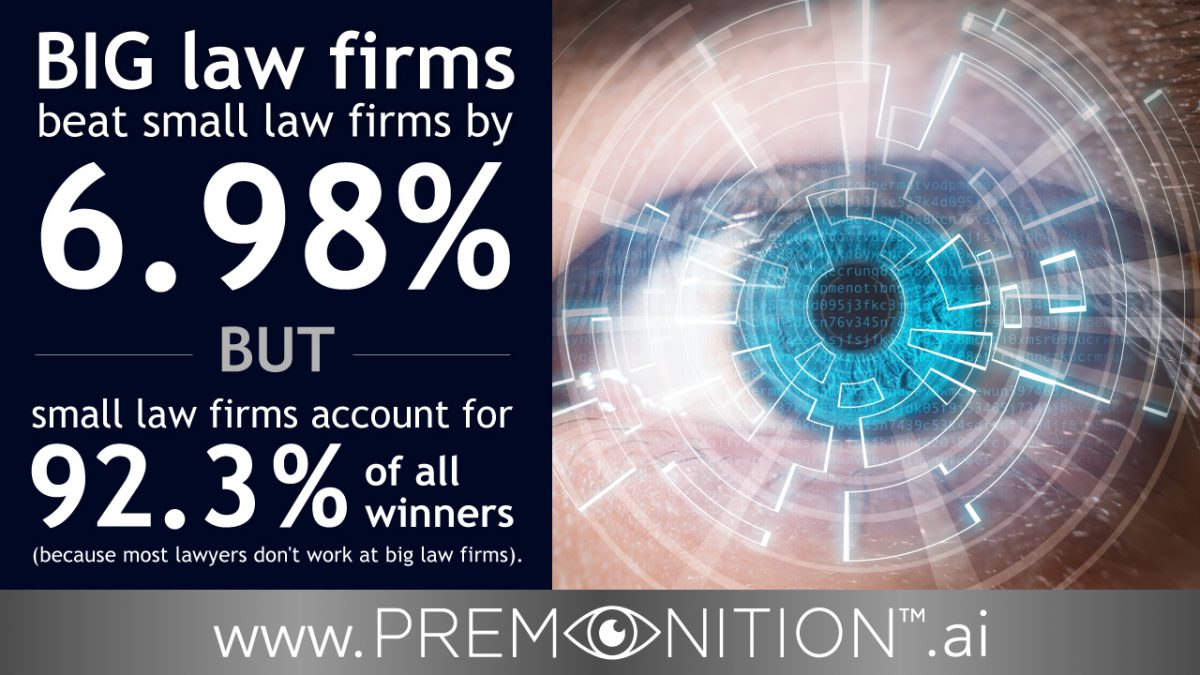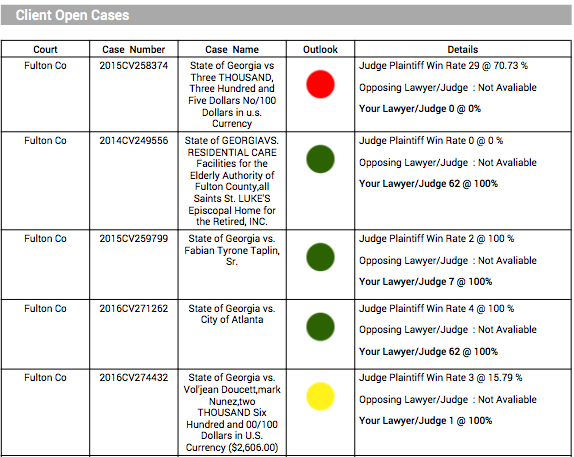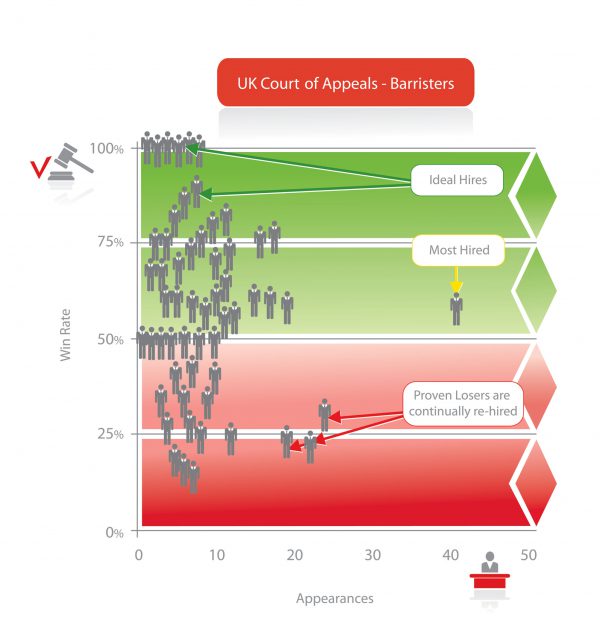Why Big Law Isn’t Big Enough & Small Firms Have Majority of Winners
Why Big Law Isn’t Big Enough & Small Firms Have Majority of Winners

Why Big Law Isn’t Big Enough
The old adage “No one over got fired for buying IBM” has its counterparts in law. General Counsel hire major law firms because they are assumed to be “good”. Let’s take the choice between instructing a big law firm (our definition being an Am Law 300 firm in the US) versus a small law firm. Most general counsel, insurance firms, leading companies will view this as a no brainer, the big law firm wins every time. The accepted market wisdom is that big law is best.
It can also become a cloak of accountability behind which a CYA (“cover your ass”) culture is allowed to flourish, with business critical but flawed decisions made on the basis of generally accepted reputations and market assumptions driven by peer recognition.
But data is having a transformational impact on the dismantling of assumptions and performance myths, that are and have been a bedrock of corporate decision making. Never more so than within legal services.
Having created the biggest litigation database in the world, our unique depth of data at Premonition enables us to shine a light into every corner of the litigation market, not least to understand who the winners are and importantly, where they come from and the situation is far more nuanced than buyers might appreciate.
We’re able to isolate the top lawyers in front of certain judges across multiple jurisdictions around the world. We’re soon to release detailed analysis of lawyer performance within 39 major cities of the US and we’re starting to reveal some startling truths.
Whilst big law firms beat small law firms by 6.98% the vast majority of lawyers work for small firms and data reveals that an extraordinary 92.3% of winners in court, actually come from small firms, not big law.
What this means there is only a 7.7% chance that a big law firm can give you a top 20 lawyer, for your case type and judge. “Quite simply, big law isn’t big enough.” Premonition co-founder Toby Unwin explains. “A firm would need over 100,000 lawyers to even hope to have a top 20 performer for a given case type and judge. Even if every major law firm merged, they wouldn’t be big enough.” he continues.
The traditional no brainer calculation about sticking with a big firm, has been flipped on it’s head but barriers to using the small firms market remain, not least because of the following;
1. Traditional basis of instructing lawyers based on disproven peer review and CYA
2. Expanding search criteria to small law firms brings challenge of having to onboard thousands of different vendors – simply not practical for companies with significant numbers of cases.
The former becomes a non issue with greater transparency whilst the latter, requires a hyper nuanced process of helping filter selection from so many small firms, for what will often be one off cases specific to that lawyer, that type of case and that judge.
This challenge is simply operational and logistical How can you gain easy and manageable access to the thousands of high performing alternatives to big law?
Whilst Big Law lawyers might be talented, by not considering Small Law options, companies are closing off access to the overwhelming majority of lawyers who are winning in court. It is no secret that insurance companies drive the litigation market. Many are exploring the benefits of hiring lawyers directly based upon performance, bypassing the traditional law firm brand driven selection. Unwin confirmed that the market is moving in that direction, noting that companies see significant reduction in fees in addition to increased win rates.
The future will make it just as easy for buyers to access the low profile 92.3%, as the high profile 7.7%
For more information about the future, visit : www.premonition.ai
You can follow https://www.linkedin.com/company/premonition-analytics for insider legal news and download our free reports at https://premonition.ai/publications/







